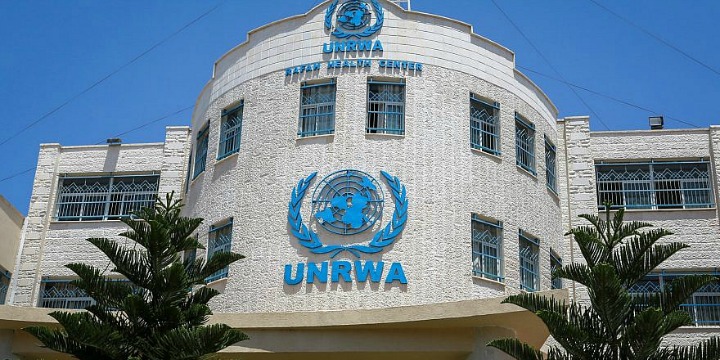Once upon a time, the United Nations launched a refugee agency called UNKRA, distinct from UNRWA. While similar, UNKRA was established as the United Nations Korean Reconstruction Agency in October 1950, aiming to aid Korea’s recovery and address the needs of three million war-displaced refugees. In practice, UNKRA only started its operations in 1953, after the war ended, with a budget of under $200 million (less than $2 billion in today’s currency) and wrapped up its mission by 1958.
Meanwhile, the Palestinian refugee agency UNRWA was born a year earlier, under UN General Assembly Resolution 302 passed in December 1949. This resolution partially hinged on Resolution 194, which allegedly conferred a “right of return” to the refugees. It’s worth remembering that all Arab nations opposed both the partition resolution and Resolution 194, due to their resistance to a Jewish state and the return conditional upon recognizing such a state. This hasn’t stopped Palestinians from zealously backing Resolution 194 – focusing only on the aspects that suit them.
Regardless, UNRWA was supposed to rehabilitate the refugees and resolve the issue, according to repeated UN General Assembly resolutions. The majority of refugees, both those who fled and those expelled, ended up in regions where they shared the same language, culture, religion and often familial ties. Furthermore, most found themselves in the exact areas – the Gaza Strip and the West Bank—designated for the Arab state (which only years later became known as “Palestinian”), according to the UN partition plan.
Yet, none of the original UN resolutions materialized. Today, refugees have become a matter of lineage rather than immediate crisis. Arab states resisted any efforts to integrate these Arabs, who were their kin. The decision effectively became one of perpetuating their refugee status.
Here and there, attempts at rehabilitation did occur. In their insightful book “The War of Return,” Dr. Einat Wilf and Dr. Adi Schwartz recount the initiative by Musa Alami, a leading figure among Palestinian Arabs, who in the early 1950s established a prosperous farm near Jericho. This farm supported hundreds of families, housed a school and a center for orphaned children, and even secured international export agreements. However, the creation of a flourishing farm was viewed as a betrayal of the victimhood narrative. Following incitement, an Arab mob descended upon it, leaving destruction and ruin in their wake. The farm, in a much diminished form, still exists today.
UNRWA succumbed to Arab pressure. There was no rehabilitation, resettlement or economic initiatives, and no exit from the refugee camps. Quite the opposite, in fact. Journalist David Bedein has conducted numerous investigations revealing how UNRWA’s educational institutions have become breeding grounds for indoctrinating hatred against Israel, by nurturing illusions about the “right of return.” Tens of millions became refugees in the last century. They did not receive a “right of return.” Jews, too, endured a harsh Nakba in Europe, and another in Arab countries. They were expelled, their properties confiscated. But they lacked an agency of their own to foster hatred and support destruction and terrorism. The Palestinians, however, have had just that.
No one needed to wait until October 7 to realize that under UNRWA’s auspices a monster of terror support had been established. A series of testimonies have been gathered regarding UNRWA employees’ involvement both in the massacre on October 7 and in Hamas terrorist activities, as well as Hamas’ use of UNRWA facilities. In September, Israel neutralized Fathi Al-Sharif, a man who served as the coordinator between Hamas and Hezbollah in Lebanon, yet his salary was paid by UNRWA, where he was magnanimously called principal of an UNRWA school and president of the UNRWA Teachers Union in Lebanon. An exemplary educator indeed.
This backdrop sets the stage for two legislative proposals by Knesset members Boaz Bismuth and Yulia Malinovsky, aimed at severing Israel’s ties with UNRWA and revoking the agency’s international immunity. Even opposition members have signed onto the second proposal. However, there is doubt whether these laws will pass, as both the U.S. and the European Union are exerting unbearable pressure to prevent their passage. Even in a letter threatening an embargo from U.S. Secretaries of State and Defense Blinken and Austin, there is a clear demand to freeze the legislative processes against UNRWA.
It’s unfortunate, because time and again it’s not just progressive circles but also leaders of Western countries, including the U.S., that contribute to the perpetuation of the refugee problem, propaganda against Israel, and essentially fund a UN agency that aids terrorism. Western countries advocate for a two-state solution for two peoples. How can peace be achieved when UNRWA institutions educate for the eradication of Israel?
How can one support a UN agency whose facilities have been used by Hamas? How can one endorse an agency that perpetuates misery? Israel has failed miserably in presenting its rightful stance, yet relenting is not an option. This terror-supporting agency must be dismantled – not to hinder the prospects of a peace agreement, but rather to eliminate one of the main obstacles to any accord, paving the way for an agency like UNKRA to replace UNRWA.









